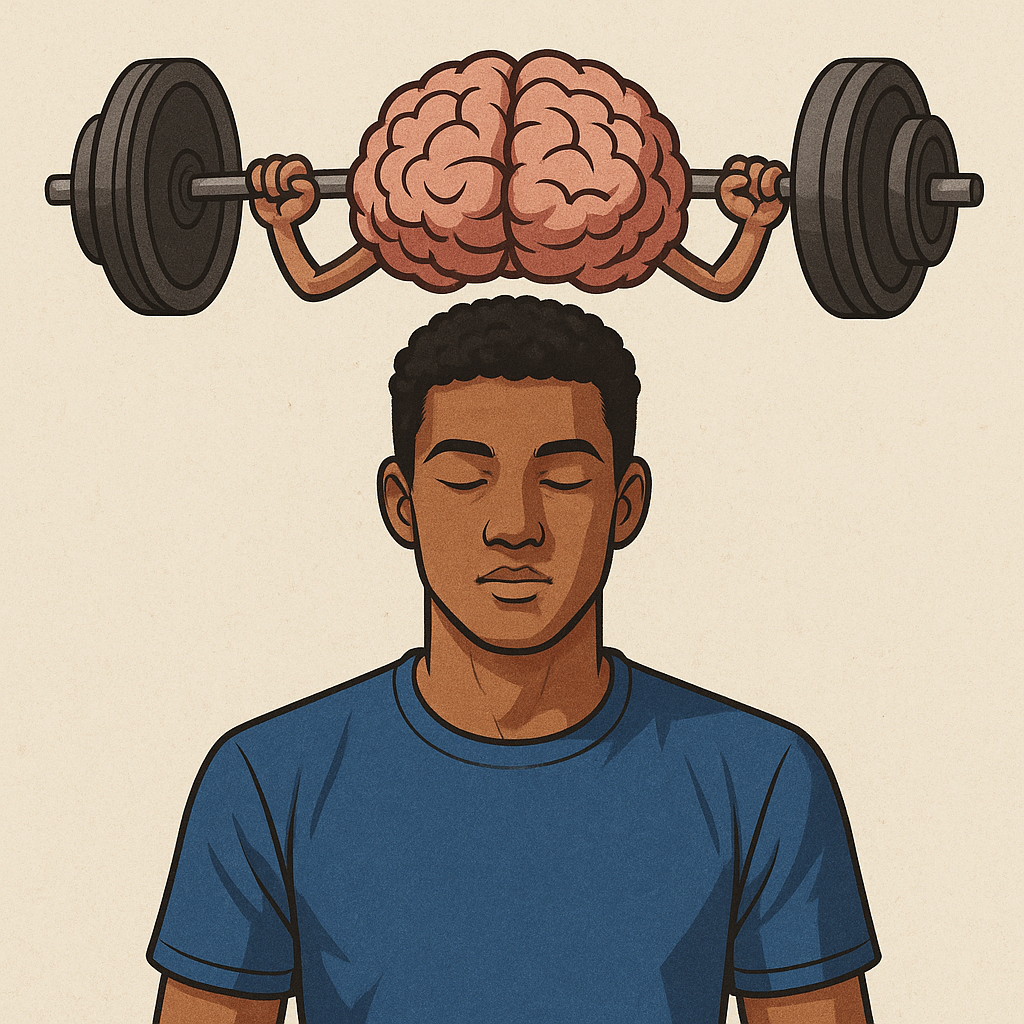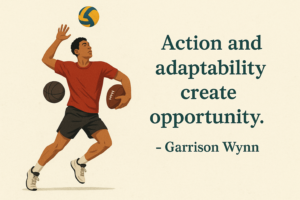“Toughness is in the soul and spirit, not in muscles,” -Alex Karras
Every athlete knows what it means to train their body. We push weights, run sprints, and perfect mechanics for hours. But the mind — that invisible engine that drives performance — often gets ignored until something breaks.
Anxiety creeps in. Stress builds. Depression whispers that maybe we’re not enough.
The truth is, mental health and mental performance are not two separate worlds. They’re partners. The stronger your mental wellness, the more your performance reflects your best self — not your fears.
Drawing on insights from three guests with distinct expertise in the world of sports performance that we heard on the Significant Coaching Podcast this season— former NFL quarterback Luke Falk, mental performance coach Dawn Grant, and sport psychologist Dan Mickle — here are five keys to building a healthy, resilient, and high-performing mind.
1. Control the Controllables
Luke Falk often says that when pressure builds, most athletes try to control everything — the outcome, the crowd, even the coach’s mood. But peace comes when you shrink your circle of concern down to what’s actually yours.
You can’t control how a coach reacts to your mistake. You can’t control a bad call or a bad bounce. But you can control your breath, your focus, and your response.
Luke shared how his own mental breakthrough came when he stopped trying to “fix” every external situation and started mastering his internal state. The great ones, he said, learn to “play from peace, not panic.”
Action Step: Before every practice or competition, write down three things you can control — effort, energy, and attitude are great starters. Focus on those, and let the rest fade into background noise.
2. Rewire the Subconscious
Dawn Grant, who has trained elite athletes and world champions, reminds us that 90% of our thoughts are automatic — habits built through repetition. The mind is like a computer: it runs whatever code we’ve programmed into it.
If your self-talk is filled with doubt (“I always choke,” “I’m not good enough”), that becomes your operating system. But if you consistently visualize success, breathe through mistakes, and reinforce belief, you start teaching your subconscious to expect calm, confidence, and control.
Action Step: Practice what Dawn calls “mental reps.” Close your eyes and visualize yourself performing at your best — feel the rhythm, hear the sounds, see the success. The brain doesn’t distinguish between real and imagined success; it just strengthens the neural pathways you feed it.
3. Build Mental Awareness, Not Just Toughness
Dan Mickle argues that “mental toughness” is overrated. He prefers mental awareness — the ability to understand what’s happening inside your head and make choices that serve you.
Too many athletes try to bulldoze their emotions instead of acknowledging them. That’s not strength; that’s suppression. Awareness is the skill that allows you to notice, “I’m anxious right now,” without judging it. When you name an emotion, you regain power over it.
Dan compares it to learning your body’s cues during conditioning. You don’t panic when you’re tired — you adjust your pace, manage your breath, and keep going. Mental awareness is the same principle applied to emotion and thought.
Action Step: When you feel anxious, don’t immediately fight it. Label it (“This is anxiety”). Then ask yourself what that emotion is trying to tell you — maybe you care deeply, maybe you need rest, maybe you need to simplify. Awareness transforms emotion into information.
4. Create Daily Mind Habits
All three guests agreed on this: mental strength isn’t built once; it’s built daily. Just as you wouldn’t lift weights once a week and expect physical growth, you can’t “fix” your mindset only when things go wrong.
Luke starts every day with a quiet routine — gratitude, prayer, and deep breathing — to anchor his perspective. Dawn uses morning affirmations and visualization to set her emotional tone. Dan teaches athletes to journal three short reflections after every day:
- What went well?
- What didn’t?
- What will I focus on tomorrow?
That consistent self-audit builds emotional regulation and mental clarity — two ingredients that keep anxiety and stress from spiraling.
Action Step: Create your own “mental warm-up.” Spend five minutes each morning or evening doing one of the following:
- Breathe deeply for 2 minutes.
- Write down 3 things you’re grateful for.
- Visualize your next practice going well.
- Repeat a simple affirmation (“I am calm, I am capable, I am ready”).
Small, daily practices lead to big shifts in resilience.
5. Connect and Communicate
Even the strongest athletes break when they feel alone. Depression thrives in isolation. That’s why connection — real, authentic connection — is essential for mental health.
Luke Falk emphasized the importance of talking to teammates and coaches, not hiding behind the mask of toughness. Dawn Grant shared how vulnerability allows healing: “When you speak your truth, your body relaxes, your brain stops fighting itself.”
Dan Mickle takes it one step further — he encourages teams to normalize conversations about emotion the same way they talk about conditioning or nutrition. Because mental performance is part of the game plan, not a weakness to be hidden.
Action Step: Build your mental team. That might include a trusted coach, a parent, a friend, or a counselor. Share what you’re feeling, even if it’s uncomfortable. Talking doesn’t make you soft; it keeps you sane.
Final Thoughts: Train the Mind Like the Body
Athletes are masters of repetition — but sometimes, we repeat the wrong things. We rehearse fear. We practice self-criticism. We memorize our mistakes.
But with awareness, practice, and community, we can rewrite the playbook. The mind can be trained — not just to perform, but to heal.
As Luke Falk put it, “You’ll never play free if your mind is full.”
So clear the clutter. Rewire the thoughts. Build habits. Stay aware. Stay connected.
Because the strongest athletes don’t just train harder — they think healthier.
Want to Strengthen Your Mental Game?
If you’re ready to take the next step in your development — not just as an athlete, but as a person — explore more at CoachMattRogers.com.
There you’ll find weekly blogs, podcasts, and tools designed to help athletes, parents, and coaches focus on what truly matters: significance over success. From The Significant Recruiting Launchpad to The Recruit’s Journal and Significant Coaching Podcast, everything I create is built to help you build stronger teams, stronger minds, and stronger lives.






